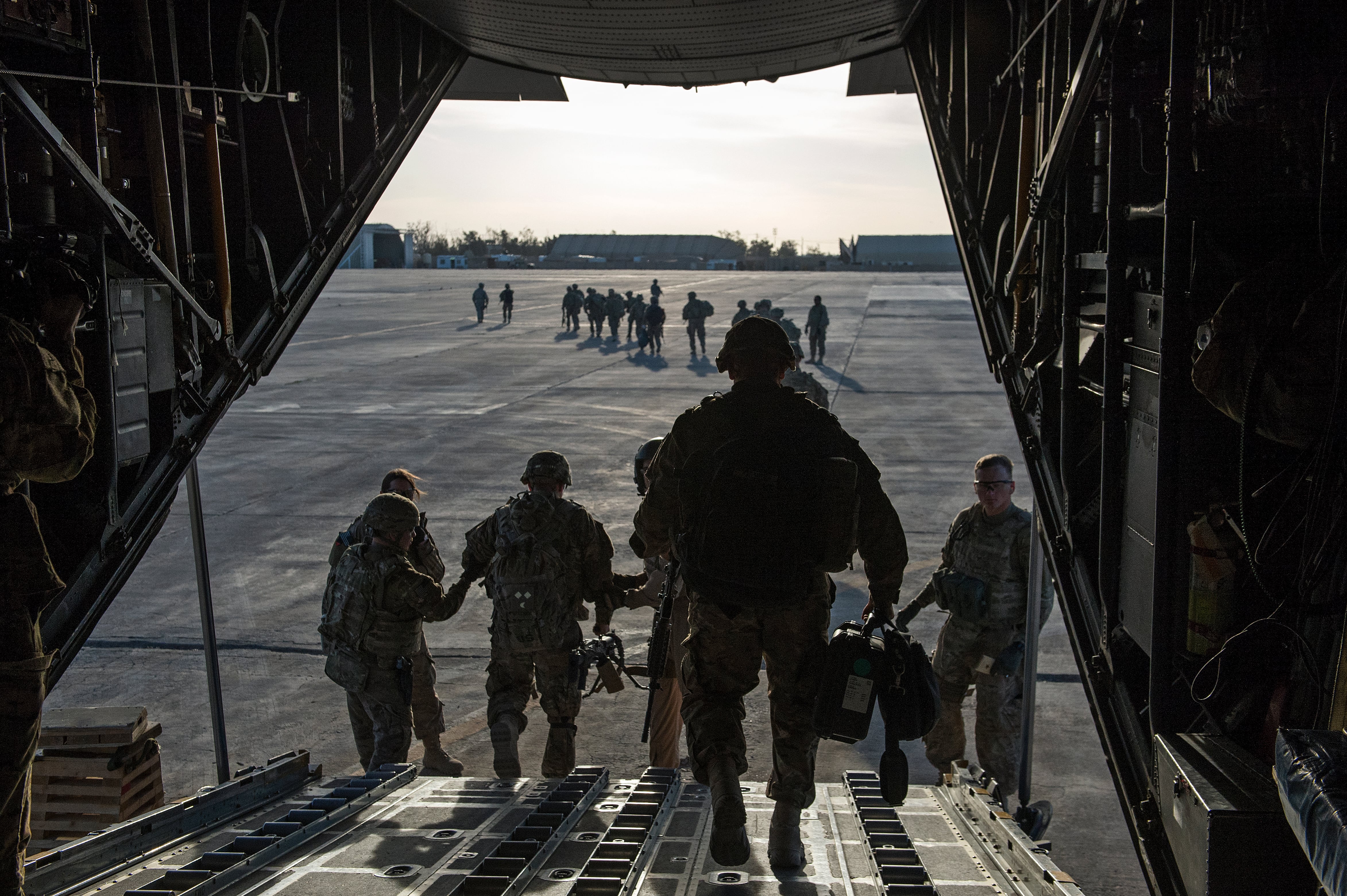An Army captain deployed to Kuwait has sued President Obama because he believes the war against the Islamic State terror group is illegal, reigniting a long-simmering issue between the president and Congress.
Smith, 28, was commissioned in 2010 and deployed to Afghanistan for eight months in 2012. He has been deployed to Kuwait since last fall with the Combined Joint Task Force Operation Inherent Resolve, which is responsible for overseeing the fight against the Islamic State.Capt. Nathan Smith, a military intelligence officer, is seeking "a declaration that President Obama’s war against ISIS is illegal because Congress has not authorized it," according to court documents. The suit, first reported by the New York Times, goes on to cite the 1973 War Powers Resolution and says the president "did not get Congress’s approval for his war against ISIS in Iraq or Syria within the sixty days, but he also did not terminate the war. The war is therefore illegal."
Smith considers ISIS "an army of butchers" and believes that participating in the fight against them "is what I signed up to be part of when I joined the military," according to court documents.
However, Smith filed the lawsuit "out of conscience because fighting an illegal war forces him to violate his oath to 'preserve, protect, and defend' the Constitution," according to the lawsuit.
A spokesman for the Justice Department declined to comment on the lawsuit.
Obama administration officials, including Defense Secretary Ash Carter, have repeatedly said they have all the legal authority they need to conduct the ongoing fight against the Islamic State group.
The campaign against the group, however, has steadily grown from airstrikes to deployed trainers to search-and-kill teams. Just this Tuesday, a Navy SEAL, Special Warfare Operator 1st Class Charlie Keating IV, was killed when ISIS fighters attacked Peshmerga forces in northern Iraq.
As the campaign has grown, there has not been any formal approval from Congress, nor an explicit new military force authorization, also known as an Authorization for Use of Military Force, against ISIS.
Instead, Pentagon planners have been proceeding under broadly written permissions granted by lawmakers after the Sept. 11, 2001, terrorist attacks that allow military action "in order to prevent any future acts of international terrorism" against the United States. Critics have argued that stretches the 2001 agreement too far.
"Right now, the president has the legal authority that he needs under the 2001 AUMF that Congress passed," White House Press Secretary Josh Earnest said in December.
While they insist they are on sound legal footing, Carter and White House officials have repeatedly called for a new authorization for use of military force, arguing the move would show American resolve in the fight against ISIS.

U.S. soldiers leave a C-130H Hercules as they arrive in Iraq to support Operation Inherent Resolve.
Photo Credit: Senior Airman James Richardson/Air Force
A senior administration official, speaking on background, declined to comment on pending legal matters, but again on Wednesday renewed calls for an Islamic State-specific authorization.
"Passing an ISIL-specific AUMF with bipartisan support would provide a clear signal of unity to the men and women of our armed forces, to our allies, and to our enemies," the senior administration official said.
Obama has sent lawmakers a draft AUMF, sent key leaders to testify before Congress, met numerous times with lawmakers from both parties, and appealed directly to Congress during his last two State of the Union speeches, the official said.
"Yet more than a year later, Congress has utterly failed to fulfill its responsibility," the official said.
Smith, on his part, is not speaking to the media, said Bruce Ackerman, a Yale Law School professor and a consultant for Smith's attorney, David Remes. Smith's decision to file the lawsuit was "a serious decision," said Ackerman, who described the young officer as "intelligent, thoughtful."
Two fundamental issues Smith faced were his conscience and an 1802 Supreme Court opinion, led by Chief Justice John Marshall, on whether a military officer had a duty to disobey illegal orders from his commander in chief, Ackerman wrote in an opinion piece in the New York Times.
"As Captain Smith reflected on that decision, he first thought that only one path was open to him: As an officer devoted to the Constitution, he had an overriding obligation to disobey orders issued as part of the Inherent Resolve operation — despite the threat of immediate detention and serious punishment if his view of the law was ultimately rejected by military tribunals and civilian courts," Ackerman wrote.
Filing the lawsuit was a way to "resolve this conflict of duty," Ackerman told Army Times.
"People like Capt. Smith, and I'm sure there are others, should not disobey orders and go to jail and see their careers destroyed, and maybe they're right or maybe they're wrong, but they don't have the basis to make a fully informed decision," Ackerman said. "This deserved consideration in the courts of the United States. What John Marshall's opinion establishes is that you have an obligation under our system of government not to obey illegal commands. This is a very important principle. That's the thing that distinguishes our armed forces."
Michelle Tan is the editor of Army Times and Air Force Times. She has covered the military for Military Times since 2005, and has embedded with U.S. troops in Iraq, Afghanistan, Kuwait, Haiti, Gabon and the Horn of Africa.





